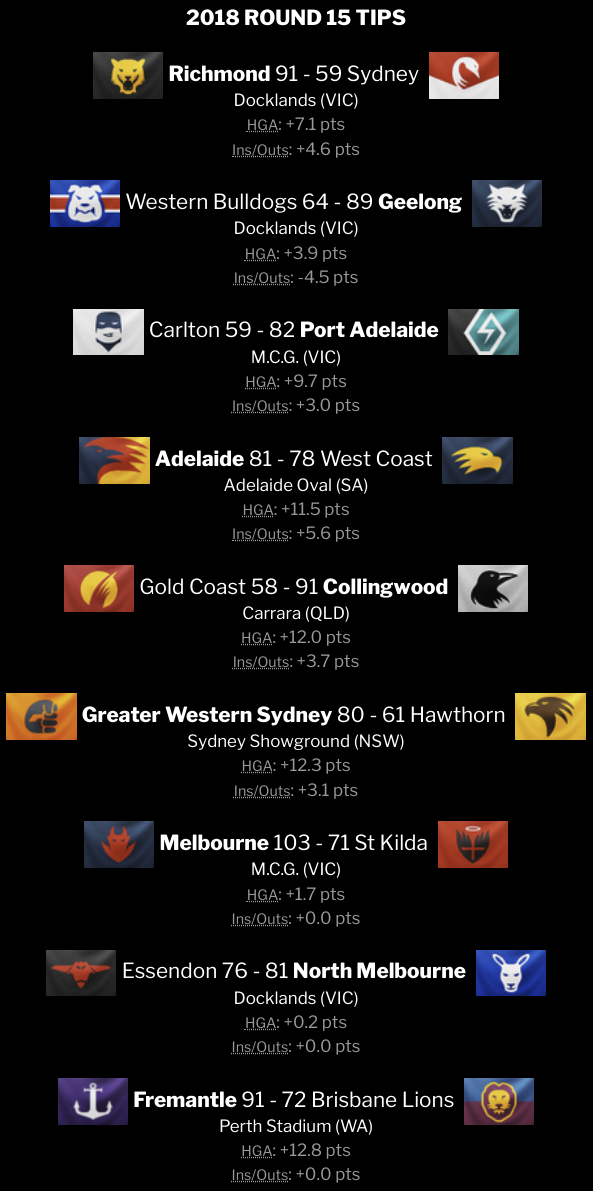- Aug 18, 2009
- 4,229
- 17,495
- AFL Club
- Richmond
- Thread starter
- #651
For up-to-date numbers: https://squiggle.com.au/leaderboard/?y=2018Hey Final Siren, how accurate has the Squiggle been in regards to tips this year?
Right now Squiggle has 77 correct tips, which is two off the leading model. It is #1 on Bits, which is very pleasing, and #2 on MAE.
Compared to humans, computer models reliably are good-but-not-great. That is, if you put one into a reasonably large human tipping comp, it would never win, because it's very conservative and doesn't pick enough upsets. But it would always finish in the top 30% or so. It's similar to picking the favourites each game: You'll be right more often than most people, but not more often than a bunch of monkeys who throw in a few upsets, because one of those monkeys will randomly get enough correct to move ahead.
The Squiggle v1 algorithm, discontinued last year, would be on 74 tips today, so the new model has gotten +3 correct so far as well has having a 1.1-point better MAE and +1.5 more Bits. The new Ins/Outs Squiggle4 algorithm, if run from the start of the season, would be on 82 with better MAE and Bits again, but those are mostly "retro-dictions", not real tips.






